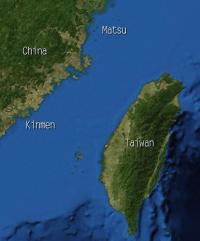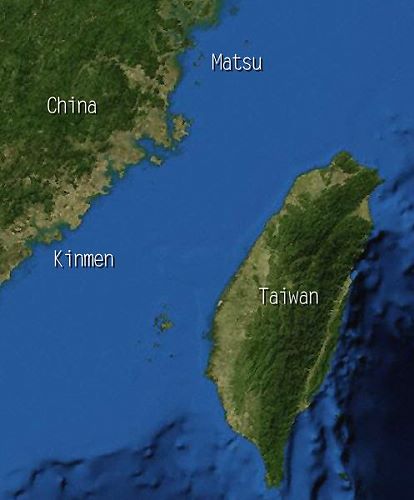 The Matsu Islands in Taiwan isn’t exactly a bustling metropolis of vibrancy. Located off the northwest of mainland Taiwan, Matsu is far more associated with its calm waves and its place in history as once being an important military outpost during the Cold War. But now that volatility between China and Taiwan is long gone, there’s not a whole lot to do in Matsu.
The Matsu Islands in Taiwan isn’t exactly a bustling metropolis of vibrancy. Located off the northwest of mainland Taiwan, Matsu is far more associated with its calm waves and its place in history as once being an important military outpost during the Cold War. But now that volatility between China and Taiwan is long gone, there’s not a whole lot to do in Matsu.
All that could change, however, if plans to build a casino on the island comes to fruition.
Back in July, Taiwan’s Matsu island group voted ‘yes’ on a referendum to allow the construction of a resort casino on the island. Of the 3,162 votes cast, 56% of voters want the casino to be built, in large part because of the resident’s belief that it would jumpstart the island’s horizontal economy. “It’s very important for us to have more Chinese tourists here,” said Hung Hsien-chang, chief engineer of the local tourism bureau, as quoted by Cindy Sui of BBC News Asia.
“It will help our economy, create more jobs and improve our infrastructure, especially by building a bigger airport.”
With its location detached from mainland Taiwan, Matsu doesn’t get the kind of tourism numbers it wants and building a casino – or casinos – is one of the best ways to lure tourists to the island, particularly Chinese tourists who would have otherwise travelled to Macau to scratch their gambling itch.
One casino, in particular, has voiced strong interest in building a casino in Matsu: Weidner Resorts Taiwan. The casino company has made its intentions known of building a casino resort in Matsu to go with a new airport that would accommodate incoming tourists. Even Chinese tourists who prefer an alternative travel option could take a ferry to the island that would only take a little over 30 minutes. Mainland China is only 20 kilometers away from Matsu.
In addition to building a casino and an airport, Weidner Resorts also has plans to build a college town and a causeway that would link the two main islands of Matsu. All this promise of economic prosperity, one that the islands haven’t seen in a long time, went a long way in winning over the residents of the destination, particularly the casinos offer of giving residents as many as NT$80,000 a month in subsidies.
Yet for all the positive vibes emanating from residents of Matsu, there are still those that are skeptical of a possible deal with China. The concern is that relying on a country it characterizes as unpredictable is a gamble that’s too risky to dive into. These fears, though unsubstantiated, could have feathery weight into them, especially when Matsu would have to rely on China to supply it with increased water and electricity to accommodate the arrival of casino resorts.
But for most of the residents of Matsu, a casino resort has become a necessary evil, one that could fuel improved economic conditions that this island has long waited for. From a sleepy town to a bustling gambling destination, the Matsu islands has one foot in the door for a casino infusion. Whether they put the other foot in the door is still a subject for consideration. As it stands now, it’s all about weighing the pros and cons of doing business with their giant neighbor.
And if the recent poll said anything, the island’s residents are ready to put their feet together inside the door and dive in.
